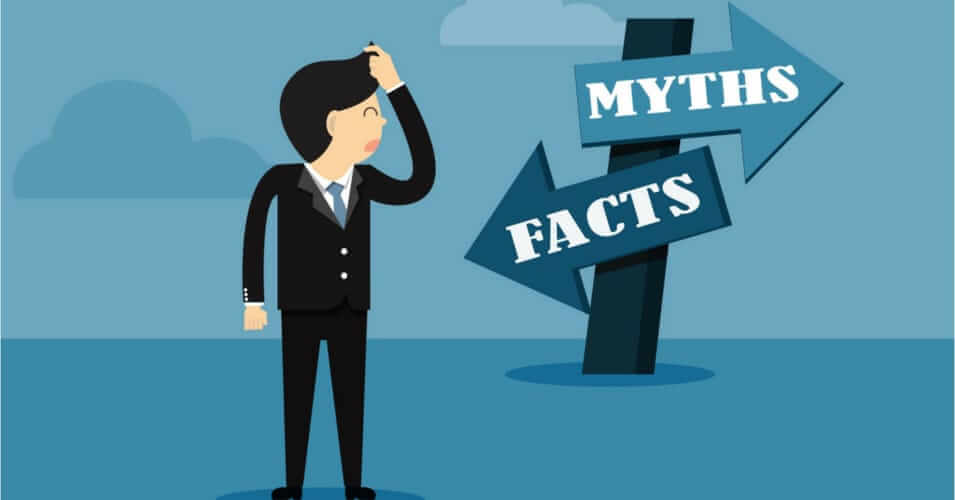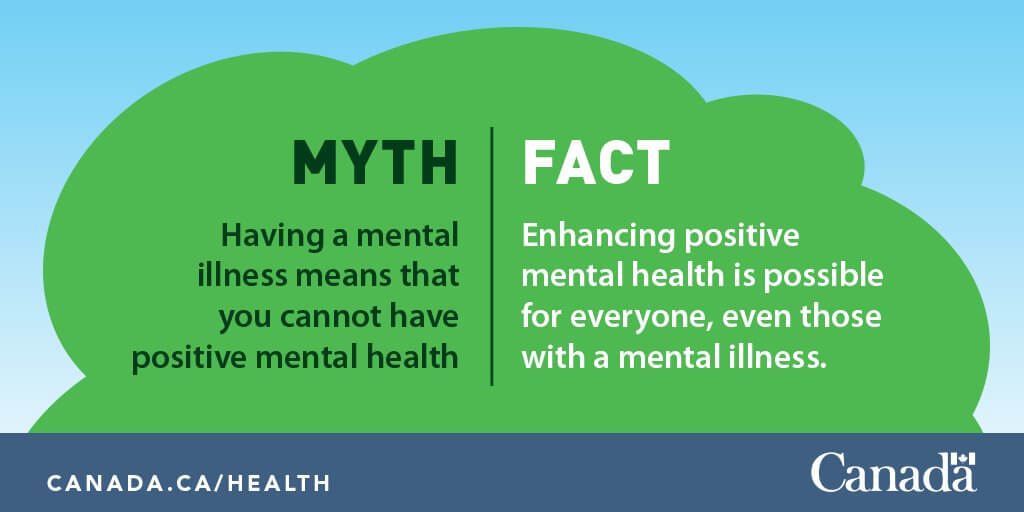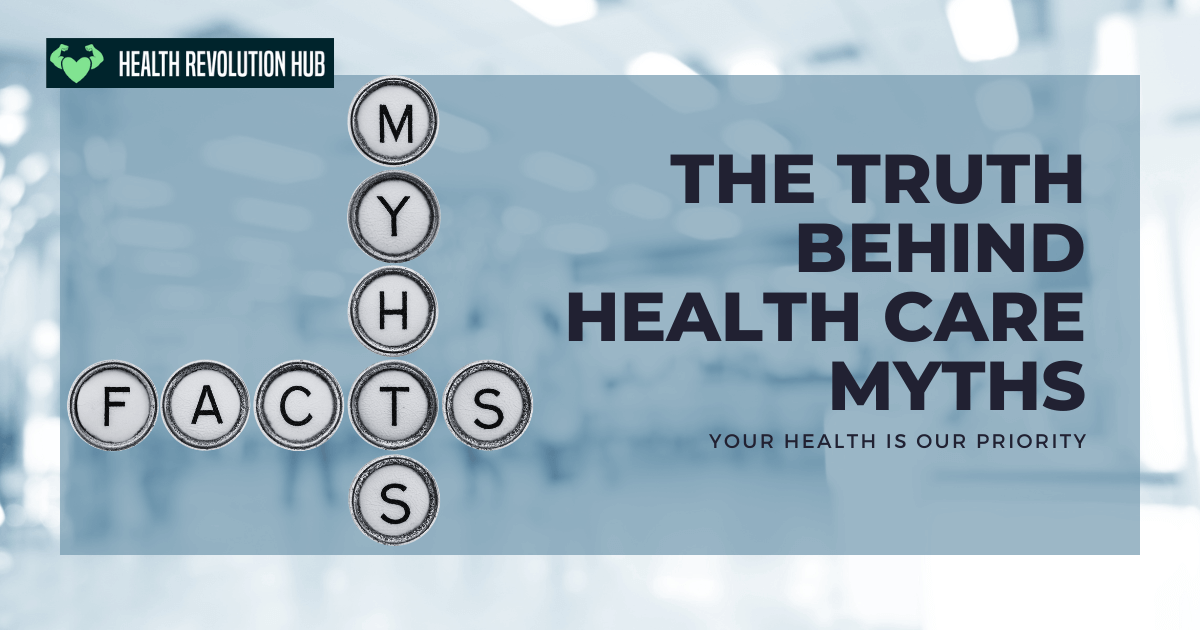Introduction to The Truth Behind Health Care Myths
Have you ever wondered if the health care myths you’ve heard are actually true? Are you unsure about what steps you should be taking to maintain good health? In this blog post, we will debunk some common health care myths and provide you with the truth behind them. So, let’s separate fact from fiction and ensure you have the right information to make informed decisions about your health.

Myth 1: Eating Fat Makes You Fat
For years, we’ve been bombarded with messages that eating fat will automatically make us gain weight. However, the truth is that not all fats are created equal. While it’s true that consuming excessive amounts of unhealthy saturated and trans fats can contribute to weight gain and various health issues, it’s important to include healthy fats in our diet.
Healthy fats, such as those found in avocados, nuts, and olive oil, are essential for our bodies to function properly. They provide us with energy, support brain health, and help absorb important fat-soluble vitamins. So, don’t fear the fat – just make wise choices by opting for nourishing sources.
Myth 2: Vaccinations Are Harmful
One of the most persistent and dangerous health care myths is the belief that vaccinations are harmful and can cause more harm than good. However, this is simply not true. Vaccinations have been proven to be one of the most effective ways to prevent serious illnesses and even eradicate certain diseases.
Vaccinations save lives by strengthening our immune system and protecting us from harmful viruses and bacteria. They have successfully eliminated diseases like smallpox and have significantly reduced the incidence of others, such as polio and measles. So, protect yourself and those around you by ensuring you are up-to-date with your vaccinations.
Myth 3: Natural Remedies Are Always Safe
In recent years, there has been a surge of interest in natural remedies as an alternative to conventional medicine. While natural remedies can offer some benefits, it’s important to remember that natural remedies don’t always mean safe or effective.
Many herbal supplements and alternative treatments haven’t undergone rigorous testing, and their safety and efficacy remain unproven. It’s crucial to consult with a healthcare professional before starting any natural remedy or supplement. They can offer guidance tailored to your specific needs and inform you about potential risks or interactions with other medications you may be taking.
Myth 4: Mental Health Issues Are Just a Phase

Mental health is just as important as physical health, yet there is still a prevalent myth that mental health issues are temporary or not significant. This misunderstanding can prevent individuals from seeking the help they need and deserve.
Mental health issues, such as depression, anxiety, and bipolar disorder, are real medical conditions that require treatment and support. Ignoring mental health concerns can lead to long-term consequences and negatively impact both personal and professional aspects of life. Addressing mental health issues and seeking professional help when needed is essential. Remember, you are not alone, and treatment is available.
Myth 5:You only need medical attention when you’re sick
Sought after for generations, the myth claiming that medical attention is only necessary when we fall ill has steered many astray.
In reality, waiting until we’re unwell to seek medical attention can lead to more serious health issues in the long run. Proactive preventive measures, such as scheduling regular check-ups, are essential for maintaining strong and long-lasting well-being.
Myth 6:Carbohydrates are the enemy
Widespread confusion surrounds the notorious myth that all carbohydrates should be considered the enemy. Carbohydrates are indeed a primary source of energy for our bodies, acting as a vital fuel that keeps us going.
The key lies in differentiating between good and not-so-good carbs. Refined carbohydrates found in sugary snacks and white bread may mislead us, but complex carbohydrates found in whole grains, fruits, and vegetables are the real heroes. Promote stable energy levels and overall health, bidding farewell to carb confusion.
Myth 7:If you feel fine, you don’t need to exercise
With its tempting allure, the myth suggesting that exercise is only necessary when we feel unwell has deceived many. Feeling fine may be appealing, but the truth is, that regular physical activity is the unsung hero of well-being.
Exercise is essential not only for those who are ailing but also for those who thrive. From maintaining cardiovascular health to strengthening muscles and bones, physical activity is the ultimate wellness elixir. Embrace the power of movement and pave the way for a flourishing life, regardless of how fabulous you feel.
Myth 8:You can’t catch a cold from being cold
Shivers run down our spines when confronted with the chilling myth that cold weather directly causes colds. Cold weather itself isn’t responsible for catching a cold; instead, a weakened immune system is to blame.
Stay close to the truth and strengthen your immune system to combat colds. Proper handwashing, healthy habits, and a balanced lifestyle are powerful remedies against the cunning transmission of colds. Embrace the warmth of a healthy immune system and bid farewell to the cold’s chances of invading.
Myth 9:Eight glasses of water a day are a must
The legendary myth suggesting that we must consume eight glasses of water daily has left many yearning for clarity. While staying hydrated is crucial, there isn’t a fixed magical number.
Tuning into our body's signals is key. Climate, physical activity, and overall health should guide our hydration needs. Listen to your body's prompts to maintain a well-hydrated and balanced lifestyle and quench your thirst when dehydrated. Drink from the cup of truth and be active.
Myth 10:A Higher SPF sunscreen means better protection
The deceptive myth endorsing the belief that higher SPF equals better protection against the sun’s rays has left many feeling vulnerable. Although higher SPF does offer slightly more protection against UVB rays, it’s not the whole story.
Regularly reapplying sunscreen and seeking shade during peak sun hours are equally important. Protect your skin wisely by arming yourself with this truth, letting your sunscreen be your steadfast companion during every sunny adventure.
Myth 11:If a medication works for someone else, it will work for me too.
The enticing myth proposing one-size-fits-all solutions in medication has led many astray. But rest assured, for the truth emphasizes the uniqueness of our being. Medications operate differently in each individual, guided by a complex orchestra of genetics, metabolism, and overall health.
The key lies in expert guidance from healthcare professionals who can navigate the labyrinth of personalized care. Let them ensure that the medication perfectly fits, embracing the wisdom that tailored treatment brings.
Conclusion
Understanding the truth behind health care myths is essential for making informed decisions about our well-being. Eating fat doesn’t automatically make us fat; vaccinations save lives and protect communities; natural remedies may not always be safe or effective; and mental health issues deserve attention and care. By arming ourselves with accurate information, we can take better care of ourselves and promote a healthier future.
To delve deeper into specific health care topics, consider consulting reputable sources like medical professionals, government health agencies, or evidence-based websites. Remember, knowledge is power, especially when it comes to your health.








